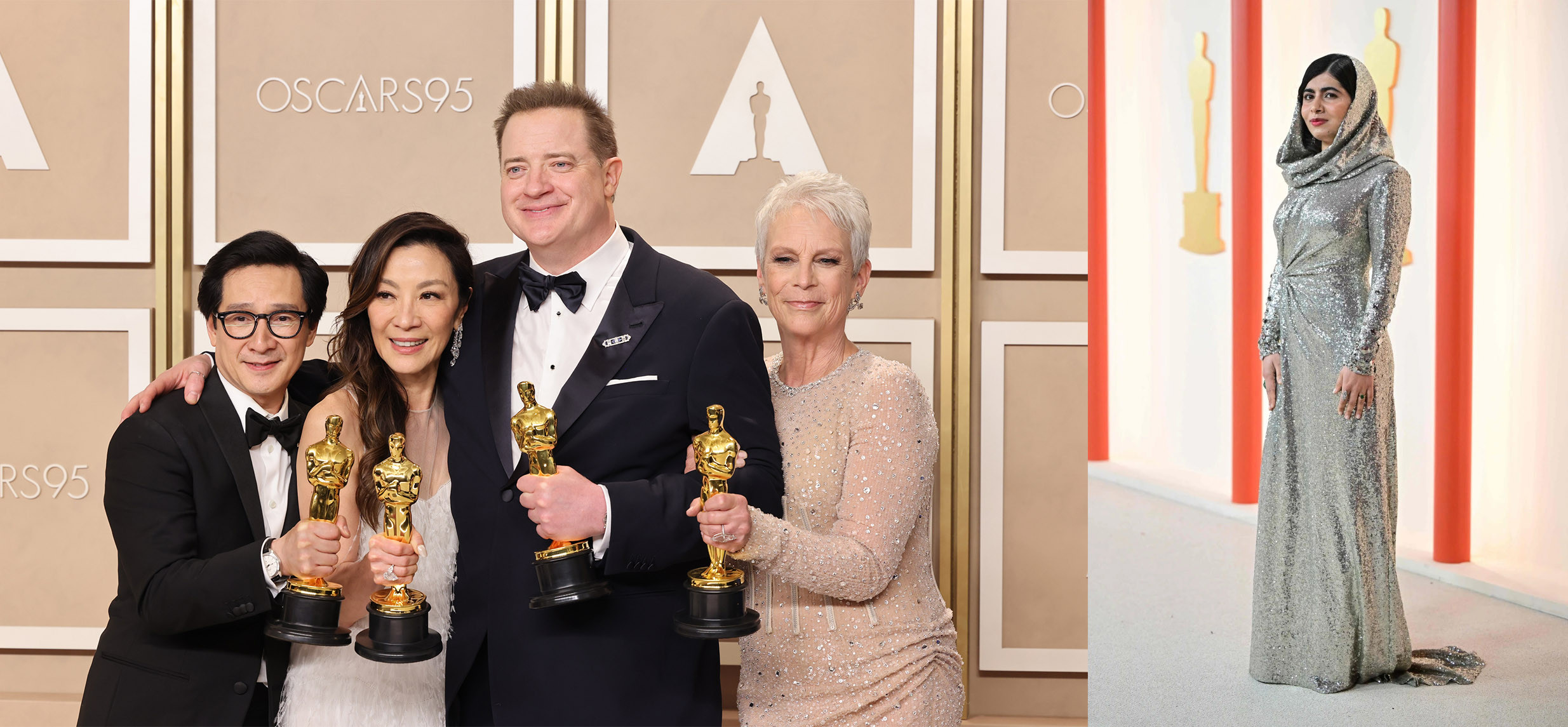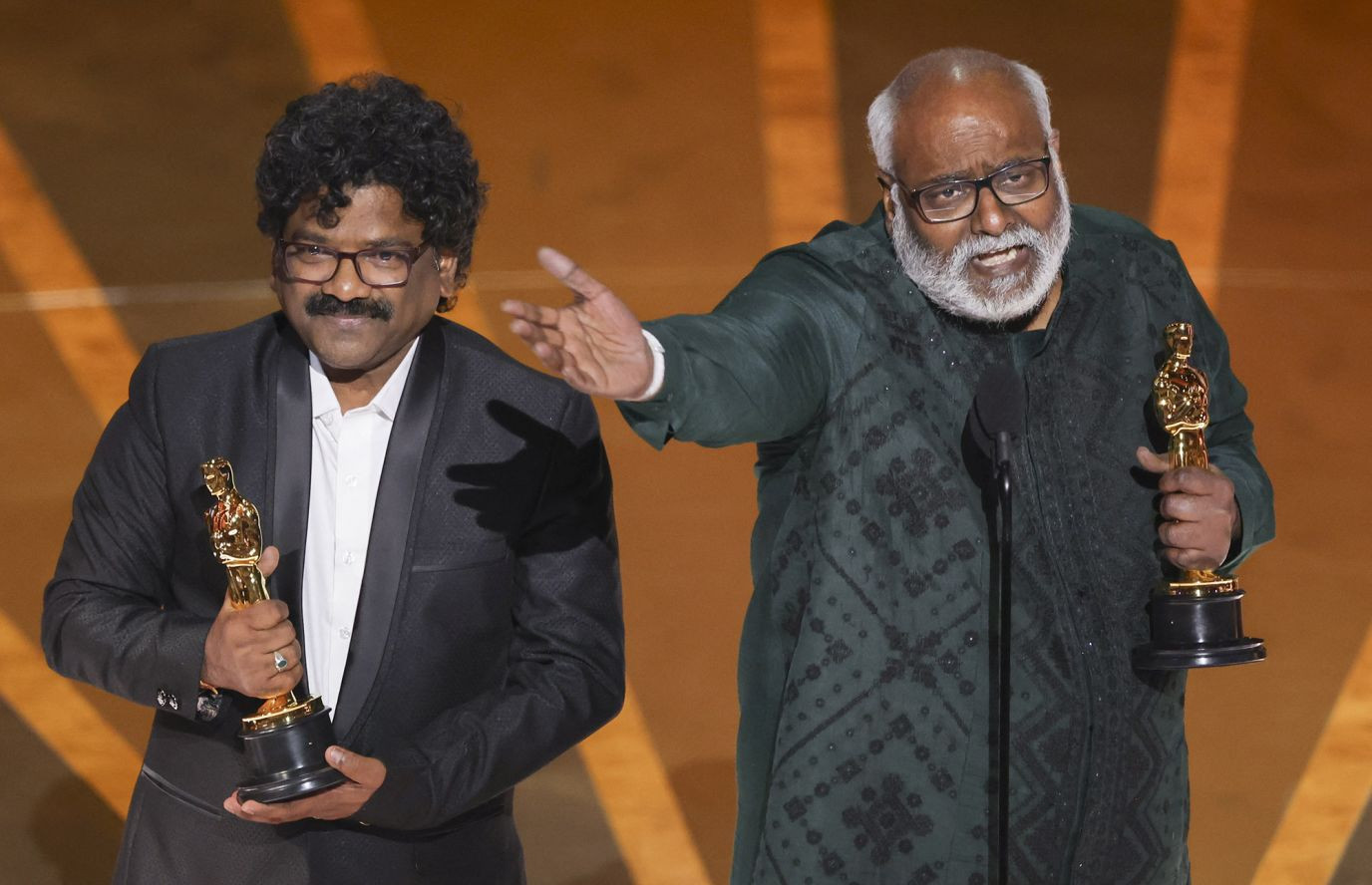It was a night for Asian representation, South Indian cinema’s musical flair, and individually a comeback of sorts for actors Brandan Frasier and Jamie Lee Curtis.
The Oscars went off-track this year from drawing heavy criticism about being politically skewed, biased, rigged even. This March the gathering of Hollywood elites did not seem to ruffle many feathers. Since the 2000s the golden man award has been seen to be on its deathbed and perhaps the tepid show of 2023 is symptomatic of its slow death. Simultaneously, as people grew wary of the process of the Academy’s selection and voting of films and artists, over the recent decades, the event of the ceremony itself always gave people something (controversial) to talk about. The Academy Award stage has been used in recent times to shed light on various issues plaguing Hollywood from gender pay gap to offering no substantial roles to the marginalised communities, be it women or people of colour.
At the 95th Academy Awards last week, Malaysian-born Micelle Yeoh made history and created waves by being the first woman of Asian descent to win the best actress award. Yeoh is by no means a new name or face of Hollywood. She has been prominent presence in films spanning many genres in her four-decade long career. Hong Kong action films where she co-starred along Jackie Chan, Kung Fu films like Crouching Tiger, Hidden Dragon, a James Bond instalment Tomorrow Never Dies, and blockbuster comedy Crazy Rich Asians all come to mind. The great Academy has finally recognised the 60-year-old for her talent in Everything Everywhere All At Once. Yeoh plays Evelyn Wang, a hard-pressed Asian American immigrant who runs a laundromat and is confronted with navigating infinite possible lives as part of the multiverse. The Malaysians were more than ready to celebrate this history-making Oscar and circulated rumours of a national holiday to show their joy but it was quickly deemed fake news by Prime Minister Anwar Ibrahim's office.

It's not just people of colour who sometimes have to wait ostensibly a lifetime for Oscar acclaim. Four years older than Yeoh, her co-star Jamie Lee Curtis, who was just last year labelled a nepo baby, received her award for best supporting actress with an emotional speech. Curtis beat Oscar favourite Angela Bassett for her powerhouse performance in Black Panther: Wakanda Forever. Bassett couldn't muster a graceful loser’s smile when the winner was announced and looked crestfallen, a bit frozen. Maybe in the after party she would have muttered and reminded people of the OscarsSoWhite hashtag that had started in 2019. But then on the same night, Ruth E Carter won the award for best costume design, another monumental win for she emerged as the first Black artist to have won two Oscars for the same category. An abysmal statistic for an award night that has rolled out the red carpet for nearly a century.
Including Curtis and Yeoh, Everything Everywhere All at Once took home seven Oscars in total out of 11 nominations, including categories for best picture, best director, best film editing and best original screenplay. The film's Vietnamese-born director Daniel Kuan's winning speech was among the highlights of the evening when he was lifted his golden statuette, along with his creative partner, Daniel Scheinert, 'the Daniel directors' as they are known. “This is not normal,” he confirmed perhaps to people of colour/mixed race.
It was not the first time for Pakistan to be represented at the most glamorous of all ceremonies in the world, but it was the first time our only living Nobel laureate attended what she, and many others, called a dream. Although she is no stranger to being in the public eye, this was a party we have never seen Malala dress for. Wearing her silver Ralph Lauren sequined gown that covered her head, she managed to be the talk of the party. Malala executive produced the Oscar-nominated inspirational film Stranger at the Gate which tells the story of former US marine Richard McKinney and his tackling of Islamophobia. The film failed to bring home an award, but Malala managed to make a mark once again on a global stage. Those Americans and American Indians really love her. Hard to say where Pakistanis still stand with regard to our respect for our Nobel Prize winners.

Naatu Naatu, the superhit song from the South Indian film RRR, is also not the first time an Indian performance has taken the limelight at the Oscars stage and take home the statue. There was a short time when AR Rehman had become a permanent fixture for the Academy. Naatu Naatu, which had previously also made history by winning at this year's Golden Globes received a standing ovation at the Oscars for its performance.
The Academy Awards played it safe. The mishaps were limited to spills on the champagne-coloured carpet which had to be cut out and pasted with new carpet pieces wherever needed as the glitterati walked over it. Even the carpet shied away from being too bold and was a non-colour as opposed to the symbolic red. The host for the evening, Jimmy Kimmel, too was well edited as he talked about the elephant in the room head on with comedic swag. He joked about Will Smith's infamous onstage slap last year to the previous host Chris Rock which was the undoubtedly what made last year's Oscars memorable. Can you even recall which film had won? Despite peppering his script with reminders of the spectacle, Kimmel dispelled the bad taste in the mouth and picked his way smoothly through the evening. Since the online chatterati wasn't given much to obsess over this time, they chose to pick apart the very lame moment he conversed with Malala, in order to jibe at him. I’m telling you the not-so-white and yet white-enough crowd loves our Malala. Maybe soon she can be the first Pakistani Nobel Laureate under 30 to bring home a golden man.
